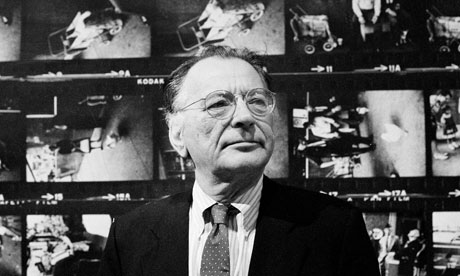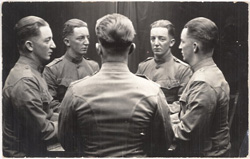End of
Year Thoughts
"At the end of 2010 a few trends have become much clearer:
1. Books that use photographs are in a moment of
renaissance, the awaited pushback against the digital-ephemeral and a new
embrace of paper (reminiscent of painting's expansion as photography took
center stage). Made with digital tools, these books, usually from small
publishers, take risks that transcend the tired monographs with photographs
centered and celebrated on white pages.
2. The digital - iPad, Web, cellphone, etc. - are still
being utilized as exceedingly rudimentary display devices, showing a haphazard
mix of image/text/sound that is often less than the sum of its parts. There is
little sense of authenticity, of risk-taking, of graphics, of layout, of
typography, of playing with scale and texture. Instead, the slide-show with
sound has become the overused default - and it is hardly an advance over what
was done decades before.
The word "magazine" comes from the
Arabic/Hebrew word "mahsan," meaning warehouse, and it is as if we
have returned to a pre-magazine era in which we are once again presenting a
warehouse of media with little filtering or thought given to effective
presentation.
3. Photography of news continues to evolve into a
photography better done by amateurs than professionals, given that there are
many more amateurs with cameras walking around at all times. The stylized
imagery by professionals repeating the stereotypical news cliches is not
helpful as a way of promoting understanding. The province of the professional
in a journalistic context is very much the long-term essay, and many are
working both in the old-fashioned and very necessary role of witness and others
are trying to re-invent it to add complexity, nuance, and engage the reader in
different ways. What is needed more than ever are thoughtful editors/curators
who can help make sense of the visual overload.
4. We are entering a post-photographic age in the
transformative sense - one in which photography has to significantly evolve in
order to be useful. We are beginning to witness this transformation in a
broader way, as many worldwide both interrogate and discard photography's set
of older strategies while utilizing other media synergies to amplify the
photograph's communicative potentials.
No photograph is automatically credible anymore beyond a
local context, and this is both a challenge and wake-up call. Many
photographers (broadly defined) now seem to be stimulated by the new potentials
of the photograph and the discussion is finally beginning to evolve beyond the
repetitive and plaintive "end of photojournalism" to a sense of
multiple new beginnings in an increasingly open-source world. The next step
will have to be a more vigorous search for meaning, as well as for
collaboration".
Text by Fred Richten


